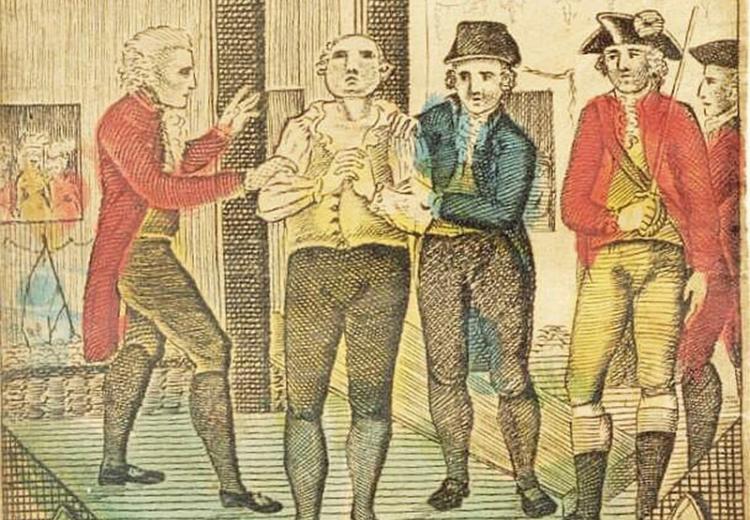The Crisis of American Diplomacy, 1793–1808

Execution of Louis XVI
This curriculum unit of three lessons covers the critical problems for United States foreign policy posed by the outbreak of the wars of the French Revolution. Was the U.S. alliance with France still in effect? Did America’s young economy require the maintenance of close ties with Britain? Ultimately, President Washington decided on a position of neutrality. This official position would last until the outbreak of war in 1812. Neutrality proved to be difficult to maintain, however, particularly in light of the fact that both Britain and France consistently interfered with American affairs.
Guiding Questions
How did British foreign policy decisions challenge American neutrality between 1793 and the ratification of the Jay Treaty?
Why was the Jay Treaty so controversial, and how did it stimulate internal democratic development?
How did French foreign policy decisions challenge American sovereignty in the late 1790s?
How did the Adams administration respond to this challenge?
Was an embargo the best means of addressing European depredations on American shipping in the early nineteenth century?
Was war a meaningful option?
Could the United States have afforded to do nothing?
Learning Objectives
Recognize the impact of the French Revolution upon American diplomacy
Explain British attacks on American neutrality
Explain the diplomatic logic behind the Jay Treaty
Articulate domestic political opposition to the Treaty
Identify French attacks on American neutrality
Articulate American responses to French depredations
Articulate the logic behind the Embargo Act of 1807
Assess the arguments for and against the application of the embargo
